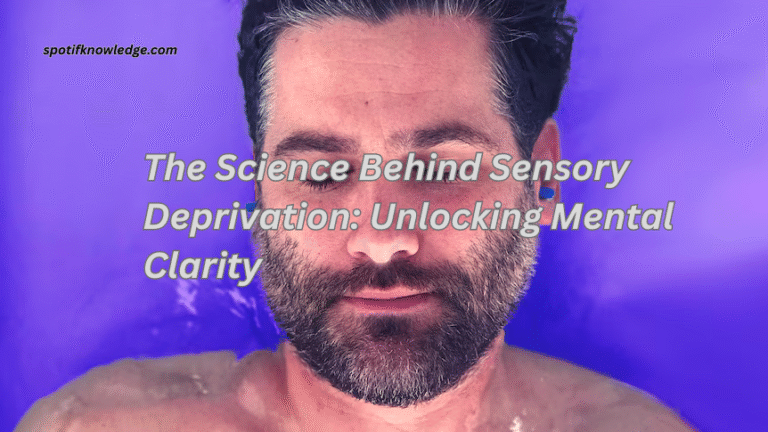Have you ever felt overwhelmed by constant noise, screens, or stress? In a world full of distractions, it’s no wonder people are looking for ways to calm their minds. One method growing in popularity is sensory deprivation, also called float therapy.
But what is it really doing to our brains and bodies? Backed by science, this relaxing practice helps bring mental clarity. In this article, we’ll explore the brain science, mental health benefits, and why floating may be the reset your mind needs. Read on.
What Is Sensory Deprivation?
Sensory deprivation happens when the brain receives little or no external input. In float therapy, a person lies in a tank filled with warm salt water. The tank blocks out light, sound, and touch.
This unique environment helps the brain slow down. Without outside distractions, it enters a deep state of relaxation. Many say it feels like floating in space or dreaming while awake.
How the Brain Responds
In sensory deprivation, the brain changes its activity. Studies show it lowers the production of stress hormones like cortisol. At the same time, it boosts dopamine and endorphins, chemicals linked to happiness.
The brain’s default mode network becomes active, helping people process thoughts and emotions. This state is similar to deep meditation. Many report clearer thinking and better focus afterward.
Mental Health Benefits
People use float therapy to help reduce anxiety, stress, and even symptoms of depression. With fewer distractions, the brain gets a break from daily pressure.
Float sessions often improve mood and sleep. For those with PTSD or chronic stress, floating offers a safe space to rest the mind. It also helps reset the nervous system, leading to calmness and balance.
Boosting Mental Clarity
Float therapy helps sharpen focus by calming mental noise. After a float, people often feel refreshed, like after a deep nap or a peaceful walk.
With time to reflect, floaters report greater self-awareness. For instance, float therapy in San Antonio sessions helps spark new ideas and decision-making. The quiet space helps the brain reset and work better afterwards.
A Natural Way to Recharge
Unlike medication or screens, float therapy works with your body’s own healing system. It gently guides you to a peaceful state, which improves mental and emotional health.
Regular floats help maintain this balance. Think of it like a gym session for your mind, keeping it clear, focused, and well-rested. It’s a natural tool for anyone looking to feel better without added stress.
Unlock Mental Clarity with Sensory Deprivation Therapy
The science behind sensory deprivation shows real promise for mental clarity. By calming the senses, the brain can enter a powerful healing state. This helps reduce stress, improve focus, and bring peace of mind.
Whether you’re facing daily stress or looking for clarity in a busy world, float therapy offers a quiet, healing space. With more people trying and loving float therapy, it’s clear this peaceful practice can make a big difference in mental well-being. Give your brain the reset it deserves; you might be surprised by the results.
Enjoyed this read? Check out more of our articles for fresh insights.

